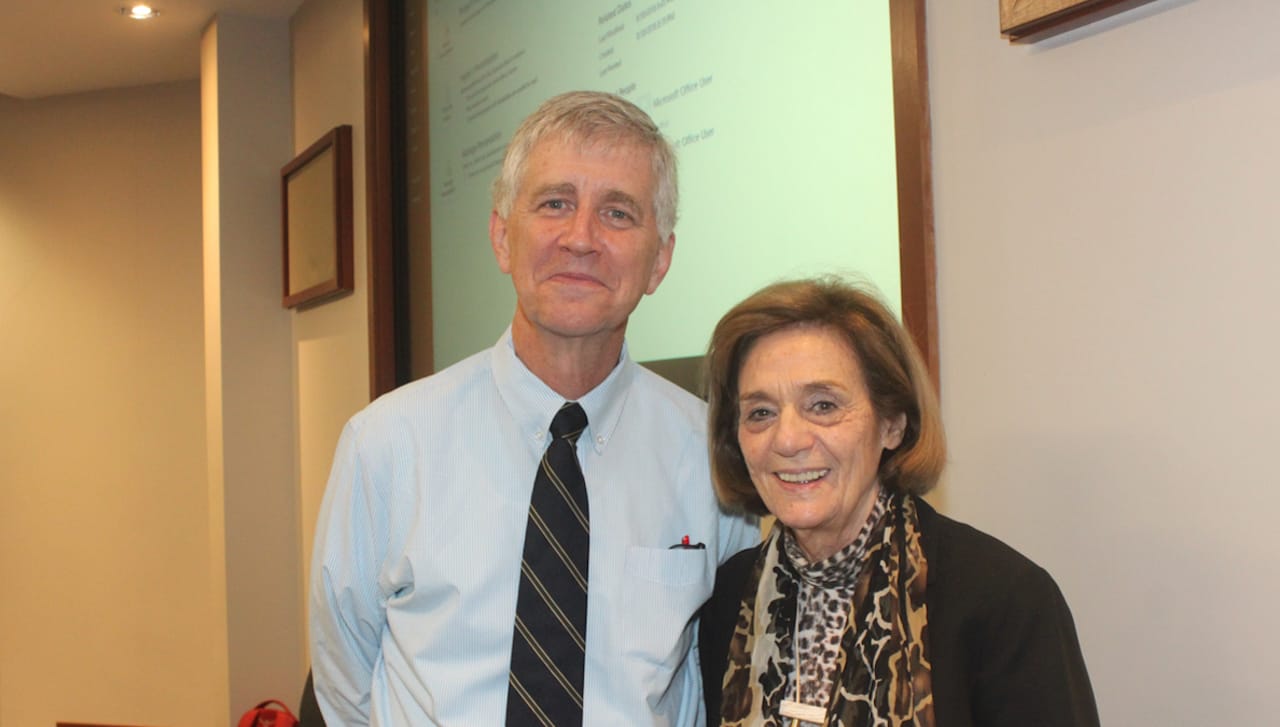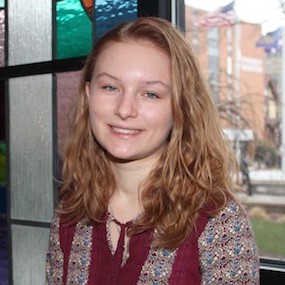‘Real Road to Serfdom’ Discussed

Matthew Meyer, Ph.D., discussed the impact of neoliberalism on democracy at his Schemel Forum “University for a Day” talk, “The Real Road to Serfdom?” in September. He is an associate professor of Philosophy at the University, and oversees the Pre-Law concentration.
Neoliberalism, a system of political beliefs most prominent during the Reagan administration, calls for freedom of private property and from governmental control, Dr. Meyer explained. The problem, Meyer said, is that sometimes Neoliberalism places more value on the importance of such freedoms than it places on democracy.
“Neoliberalism understands freedom as the ability to do what one wants,” Dr. Meyer said.
“The Road to Serfdom,” a book by famed economist and philosopher F. A. Hayek, hypothesizes that democratic nations will become enslaved socialists if their people embrace too much democracy. Hayek believes neoliberalism is the answer to too much democracy: Democratic nations should not favor their democracy more than individual rights. Neoliberalism is a reaction, Hayek argues, to socialism.
One way in which societies become too democratic, according to Hayek, is that they see all citizens as “created equal” when they should be seen only as equals before the law.
“Nowhere is the difference between the reasoning of the older liberalism and that of neoliberalism clearer and easier to demonstrate than in their treatment of the problem of equality. The liberals of the eighteenth century, guided by the idea of natural law and of the Enlightenment, demanded for everyone equality of political and civil rights because they assumed that all men are created equal,” Dr. Meyer quoted famed neoliberal Ludwig von Mises. “Nothing, however, is as ill-founded as the assertion of the alleged equality of all members of the human race.”
Dr. Meyer named his talk “The Real Road to Serfdom?” because he questions Hayek’s hypothesis of what leads nations into serfdom.
“Does Hayek’s thinking represent the real road to serfdom?” Dr. Meyer asked. “Hayek is a father of one of the key proponents of neoliberal thinking […] Does the spread of neoliberalism, or neoliberal ideas, prepare the way for the conditions of authoritarian rule?”
Yes, Dr. Meyer believes, neoliberalism does pave the way for authoritarianism. In “The Road to Serfdom,” Dr. Meyer pointed out, Hayek even writes wistfully of authoritarian governments.
“Democracy is essentially a means, a utilitarian device for safeguarding internal peace and individual freedom, we must not forget that there has been much more cultural and spiritual freedom under autocratic rule than under some democracies,” Dr. Meyer quoted Hayek. “In other words, if democracy starts getting into your business, it would be a lot better to live under authoritarian rule.” He added that the quote shocked him when he first read it.
Dr. Meyer’s biggest concern about neoliberalism is that it gives citizens a lot of rights without much responsibility. “It strips away, therefore, the demands upon us […] from having any deep commitments […] to the common good and the project called democracy,” said Dr. Meyer. The differences between the economic winners and losers created by neoliberalism are so extreme that they lead to oligarchy, which makes citizens angry and tired enough to elect a strongman. Once a strongman is in power, serfdom ensues.
“I simply don’t think that we can have a democratic society without a robust sense of, [and] a significant number of people who are committed to, notions of the common good,” Dr. Meyer said.
Other speakers at the University for a Day were James Campbell, Ph.D., Edgar E. Robinson Professor in U.S. history at Stanford University; Mark C. Alexander, J.D., Arthur J. Kania Dean and professor of law at Villanova University’s Charles Widger School of Law; and Josephine Dunn, Ph.D., professor of art history, oral history and European cultural history at Scranton.
For more information on the Schemel Forum, please contact Sondra Myers, director of the Schemel Forum, at 570-941-4089, or at Sondra.myers@scranton.edu.







